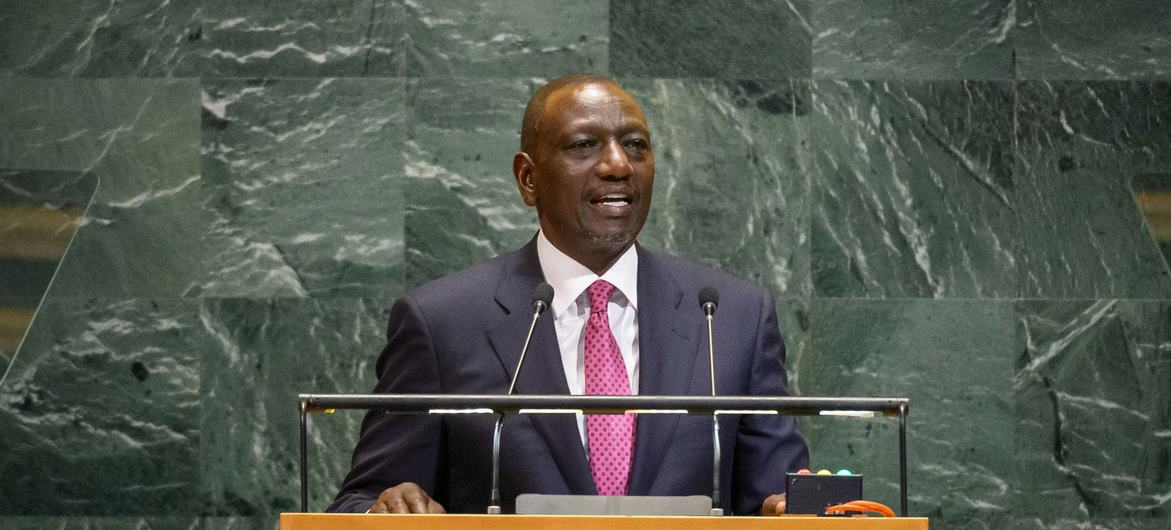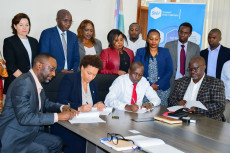- Between 1941 and 1945, Allied leaders sketched the blueprint for a new global order. The Declaration of St. James’s Palace and the Atlantic Charter lit the ideological fuse. Then-U.S. President Franklin Roosevelt gave it a name (“United Nations”) to rally the war-weary.
Born in 1920 from the wreckage of World War I, the League of Nations was pitched as humanity’s peacekeeper, armed with ideals of disarmament, diplomacy, and collective security. But history had other plans. When the world needed muscle, the League offered paper. By the time World War II erupted, it was already a ghost.
Between 1941 and 1945, Allied leaders sketched the blueprint for a new global order. The Declaration of St. James’s Palace and the Atlantic Charter lit the ideological fuse. Then U.S. President Franklin Roosevelt gave it a name (“United Nations”) to rally the war-weary.
But behind the vision loomed a ghost: the League of Nations. Its collapse was more than history, it was a warning. The UN was born not just to unite, but to avoid the fate of a body that refused to reform and paid the price.
President Ruto’s United Nations General Assembly (UNGA) speech channeled history with bold ambition to echo a call for a fairer, more responsive United Nations. But here’s the rub: some of his claims clash with the very architecture of the institution he seeks to reform. The past he invoked doesn’t always back the future he proposes.
Ruto’s core demand was crystal clear: Africa wants in, fully. Two permanent seats on the UN Security Council, veto power included, plus two non-permanent slots. He framed it as justice, not charity. The continent shoulders the Council’s agenda, supplies peacekeepers, yet remains uninvited on the table where decisions are made.
Read More
President Ruto didn’t mince words, he tore into the IMF and World Bank for rigging the financial scales. He spotlighted the lopsided allocation of Special Drawing Rights: a staggering 64% funneled to rich nations, while the poorest scraped by with just 2.4%. In his telling, global finance isn’t broken, but biased by design.
Ruto’s push for UN reform hits a wall built in 1945: the P5’s veto. China, France, Russia, the UK, and the US hold the keys, and they don’t share power easily. Any change to the Security Council needs their unanimous nod, and giving Africa veto rights would mean slicing into their own dominance. That’s highly unlikely.
Secondly, Africa’s biggest hurdle is internal: no clear agreement on who gets the permanent seats. The AU’s Ezulwini Consensus demands two, veto power included—but stops short of naming names or laying out a roadmap. Without unity, the continent’s case risks sounding bold but blurred.
Add to that Africa’s soft punch in UN finances. Influence often follows money, and Africa, contributing less than 3% of the regular budget, doesn’t pack the fiscal weight to bend institutional architecture. In reform talks, dollars still speak louder than diplomacy.
Ruto’s call for global equity may echo Roosevelt’s wartime idealism, but without structural muscle or continental unity, it risks becoming another paper promise. The UN was born from the ashes of a failed institution and if Africa wants in, it must bring more than outrage. It must bring a blueprint.
Stay connected with us on WhatsApp and X for instant updates and breaking news as it happens.




-1772102940-md.jpg)


-1772090413-1772095461-md.jpg)


-1772102940-sm.jpg)

